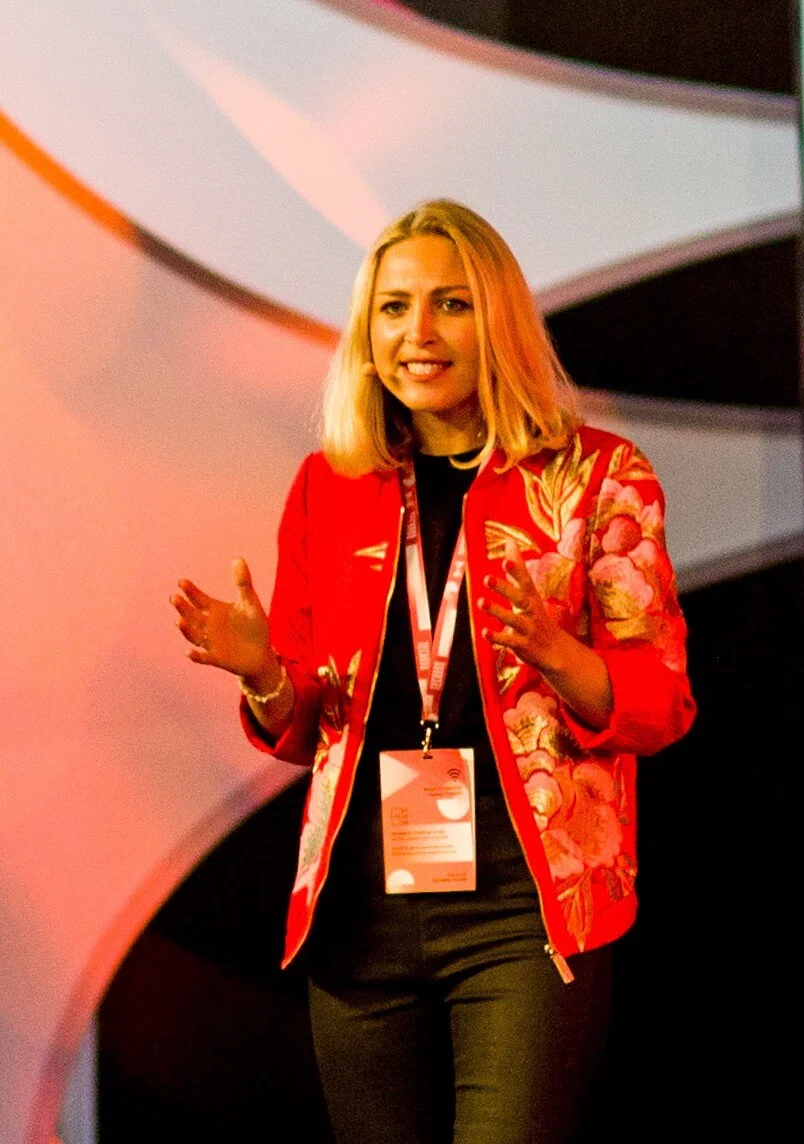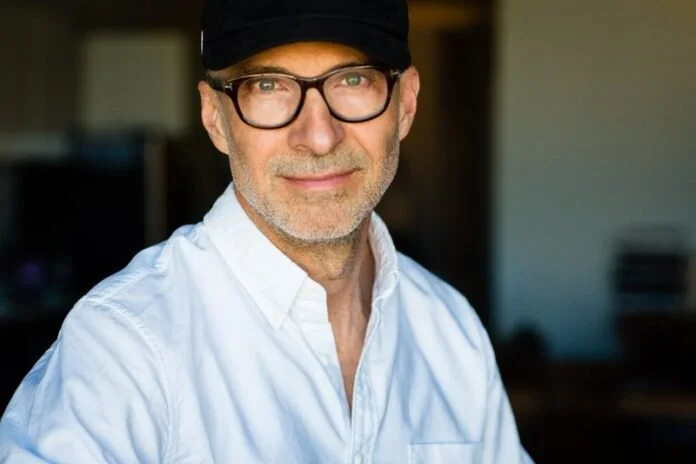Article: The current system is broken. We are in need of a healthier version of entrepreneurship.
← back
The current system is broken. We are in need of a healthier version of entrepreneurship.
Let me start by saying that the current expectations for entrepreneurs, the ways in which we define success and the conditions under which business builders operate is simply broken. The personal tolls are too high. And we cannot continue to try to fix the individual so they fit the broken system, the dysfunctional operating system.
7 minute read
We need to drive wider systemic change and rewire the model so it becomes healthier and safer for entrepreneurs to act as a force of good. With their mental, emotional and psychological health at the core.
Why do we say so?
We know that about 8% of the world’s population (582 million people) are entrepreneurs. We also know from the study of Michael Freeman (2015) that about 49% of all entrepreneurs have struggled with mental health issues. We also know from research that entrepreneurs may already be prone to mental health conditions more than the general population and that anxiety, self-doubt, depression, and loneliness are rampant among entrepreneurs. More specifically, entrepreneurs are:
2X more likely to suffer from depression
6X more likely to suffer from ADHD
3X more likely to suffer from substance abuse
10X more likely to suffer from bi-polar disorder
2X more likely to have suicidal thoughts
Yet, the picture of entrepreneurship today is one in which our wellbeing is often measured by the growth of one's business or the amount of money one has raised: the limiting and often detrimental metrics and definitions of success. The entrepreneurial race can be deep and dark, and lonely. The ‘coined’ term of the ‘founders blues’ or ‘valley of despair’ that most entrepreneurs experience is not a joke, but a reflection of the current startup and business culture.
Moreover, the COVID-19 pandemic and lockdown has shone a fresh light on the mental, emotional and psychological health both within the entrepreneurial community, and also on the role of entrepreneurs and technology in supporting and solving this challenge. Many have faced the combined trauma of social isolation, fear around the global pandemic and growing financial uncertainty.
You are not alone
One of the reasons why we launched The Future Farm, an organisation and global community of entrepreneurs, investors and other business stakeholders dedicated to healthier entrepreneurship, was the realisation that the joy and fulfilment from building businesses was only half the story. Anxiety from never-ending to-do lists; feelings of inadequacy and self-doubt; financial stresses; expectations and pressure from family and friends; uneasy conflicts with co-founders; sleepless nights and lonely days; identity crises, all whilst on an adrenaline hunt to escape, to find a release. There is more to this list, but you get the picture.
Therefore we decided to interview about a hundred entrepreneurs across geographies, types of businesses, gender, religion, age and industries, about their personal challenges and how they cope with the hardships of building a business. We then launched the NAKED podcast to create a space for entrepreneurs to come on air and share their open and vulnerable stories as well as practical insights on how to improve resilience, emotional and mental health.
From all of those conversations, the shared experience of facing emotional, mental and psychological struggles on their entrepreneurial journey was shocking. From top chefs to founders of advisory businesses, a global fintech expert, an author or a technology founder.
The biggest stressors
This statement from Dr Paul Hokemeyer is accurate for today’s world:
“Given the extraordinary impact entrepreneurs have on our world economy, it’s critically important they operate in a state of optimum emotional health. Unfortunately, in our current zeitgeist of founder burnout as a benchmark of entrepreneurial excellence, such has not been the case.”
The overwhelming ambiguity; financial instability; expectations from your team, family, investors, business partners and yourself; glorified narratives of the media; performance pressures from investors; co-founder conflicts. Those are some of the key stress factors that entrepreneurs have shared with us and that negatively impact their personal wellbeing, as well as productivity in business building.
We have learned that many entrepreneurs have faced so-called “resilience burnout”. This means that they are seen by the industry and portrayed by the media as always strong, resilient people, nearly ‘superhumans’, which then makes it even harder for them to show their vulnerability and ask for help when needed.
“A founder must be a rock” narrative; “Founders hear those idealised stories from the media and beat themselves up no matter how many times they hear that only a small number of companies can succeed,” shared one of the entrepreneurs in our interviews. “Media play a critical role in defining the image of entrepreneurs and startup founders and they are perpetuating the unhealthy narrative too often.”
Investors are part of the problem and solution
We were hearing too often how the relationship with investors is a source of anxiety and sleepless nights for entrepreneurs. Hence, we decided to research and talk to several global investors and VCs and realised fairly quickly that only few firms are taking actionable steps to prioritise entrepreneurs’ mental health and emotional wellbeing.
“I don’t feel safe to approach my investors and ask for money to be spent on coaches and therapy. Contributions to wellbeing are mostly covered for more mature companies with already existing revenue and profit. How do I justify this expense in earlier stages?” asked another business founder during the interview.
The investment into an entrepreneur’s wellbeing and health is still somewhat of a fringe movement in the entrepreneurial space. But thankfully, there are a few responsible VCs already actively supporting not only the business development, technology or growth hacking of their portfolio but also their founder's health and wellbeing.
Several times we have been asked how investors can support the health of their entrepreneurs. From the best practices that we have learned, some investors carve out a budget on the balance sheet for founders to tap into for mental and emotional health support. Other VCs facilitate a network of peer founders to connect for support and advice on more personal topics. Some of the most common questions that we have been asked by VCs that were interested in providing more structured support to their entrepreneurs were:
What should we mandate?
Shall we pay the portfolio companies to invest in mental health?
Shall we support the whole company or only founders?
How structured should our support be?
We believe that even if one was indifferent to the personal lives of the portfolio founders, they should care about founder health if they care about their portfolio returns. As an industry we do not yet have quantitative data points that would demonstrate direct causality between investing into mental, emotional and psychological wellbeing of entrepreneurs and success of their business, however we already have an existing business case of investing into the mental health of employees in the workplace. The recent Deloitte study shows that the more preventative the support and the more the organisation raises awareness, the bigger the ROI. On their own, reactive measures on average have the lowest ROI. Some businesses that have a wide array of reactive and preventative measures will even see almost £11 returned for every £1 invested.
Faith, Family and Fitness
How do most entrepreneurs cope in times of hardship?
We learned that ways and mechanisms of how entrepreneurs cope with their emotional challenges vary from conventional therapy, sharing in peer groups, the concept of 3Fs: faith, family, fitness; to disconnecting and immersing into business-unrelated activities, such as meditation, music and poetry, psychedelics. Above all, continuous work on self-awareness.
“I'm aware of my identity as a father, husband, runner and trying to be less attached to who I am as a founder to get some healthy balance on my other roles in life too,” shared another entrepreneur who joined the study.
What also surprised me was how many parallels there are between our romantic relationships with the experience of building a business. From the early, blinded honeymoon period to recognising the realities and facing the first challenges (where self-knowledge, open communication, and empathy can be powerful), to grief after losing our business or partner combined with an identity crisis, “who am I without you/if not a founder of my business”.
The line can be so blurred between our identity as entrepreneurs and our more holistic self, that company failures are often felt as personal failures. “How can the closure of the business not be seen as a failure? How can I transition into the next phase with dignity?” or “Even if I would like to stop I can't. What's out there for me?'' Those are just some of the questions shared by the entrepreneurs we spoke to.
There are a lot of similarities between the role of entrepreneurs and top athletes, Hollywood actors or artists - professions that find themselves under a major public spotlight, with high expectations and high-stake games.
“Once you are a 'star' and at the top, everybody is interested, from the media to investors, but when you are not producing results, you are out, nobody really cares. Your hopes are high but then investors walk away from you when you are not a hot potato anymore,” shared a serial entrepreneur and investor from the Indian business ecosystem.
We need a systemic solution
It’s clear that entrepreneurs who often drive positive change in society and solve some of the major systemic problems need help. Not only in acceleration of their businesses but in supporting their mental, emotional, and psychological wellbeing.
As part of the solution, we need to even better understand the root causes of the problem, as well as effective coping mechanisms. But mostly we need to join forces with the wider community of actors, from investors, media, supporting organisations to entrepreneurs and leaders themselves.
So that we can rewire the broken operating system for healthier entrepreneurship for all.
By Vladimíra Meško Briestenská, Founder and CEO, The Future Farm
Become a contributor and engage with The Future Farm
Are you interested in contributing on the topic of entrepreneur health and emotional resilience with us? Or interested in inviting The Future Farm to contribute to your initiatives or event? Drop us a note.



